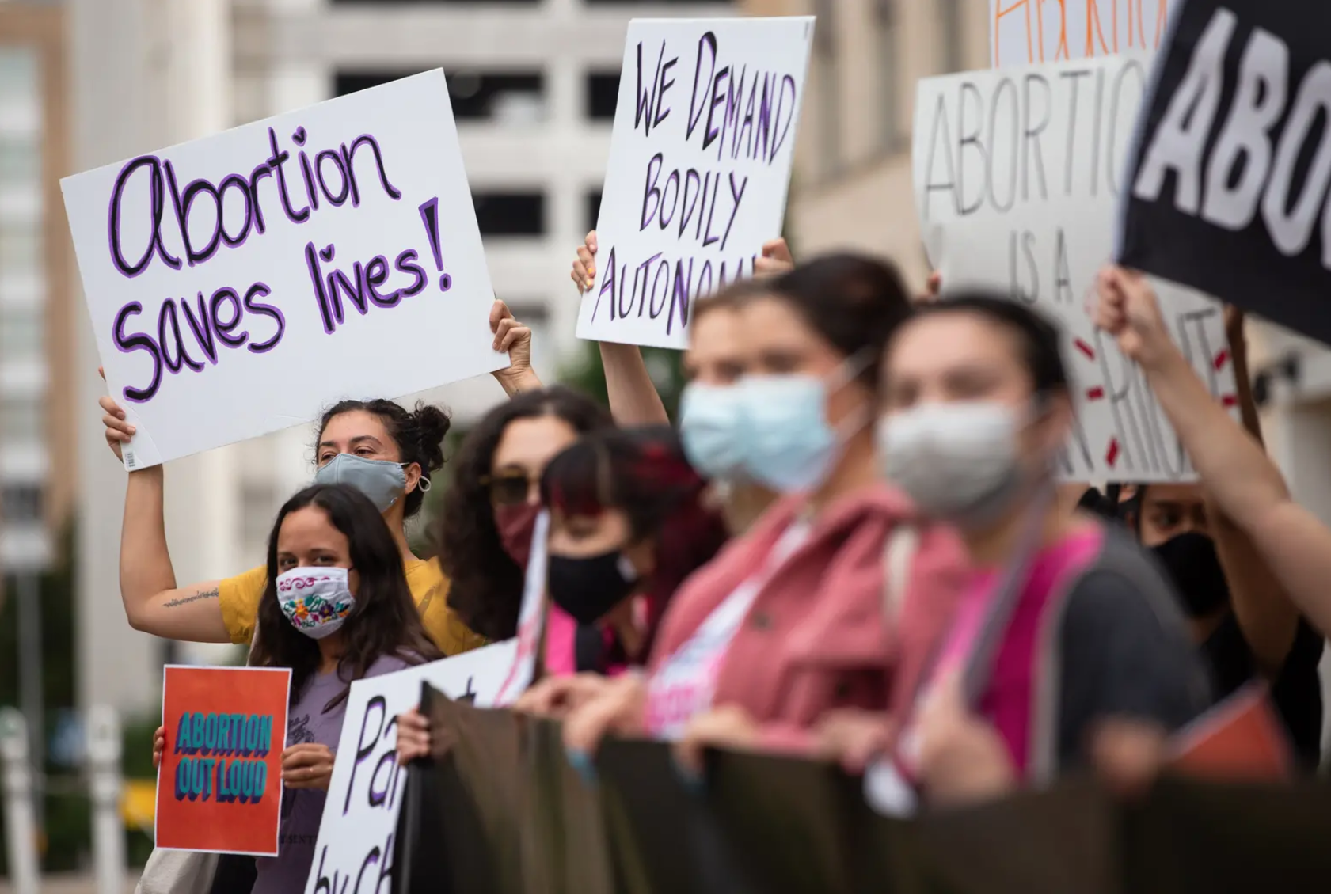A Texas law raises controversy after going into effect on Sept. 1 that banned abortions after a heartbeat is detected – typically around the six-week mark.
Courtesy of The Texas Tribune
By Molly Ryan
When the historic ruling of Roe v. Wade protected the right to an abortion within the first trimester of pregnancy, the lens in which many Americans viewed reproductive rights was profoundly cracked.
However, a newly enacted Texas bill, the Heartbeat Act, does much more than raise a question of morality in the great abortion debate – it cataclysmically changes the way one can perceive and anticipate laws to be enacted in a post Roe v. Wade world.
For Texans, the anticipated implications of the Heartbeat Act have been a forefront controversy since the bill’s debut.
Gov. Greg Abbott signed the bill into law on May 19, banning abortions after the first detection of a heartbeat in the uterus.
“Our creator endowed us with the right to life and yet millions of children lose their right to life every year because of abortion,” Abbott said in a bill signing ceremony.
Typically, a pregnant person can expect the first heartbeat within the six-week mark – only two weeks after the first missed menstrual cycle.
While the law is far from the first of its kind, as many other states have similarly passed deeply repressive abortion legislation, it is one of the first to go completely unchecked by the Supreme Court upon its passing.
When the bill went into effect Sept. 1, a deeply polarized debate arose as one mass expressed outrage and the other exuberance.
But what many people on both sides of the political spectrum are missing is the reality that the jurisdiction does not outlaw abortions – only safe and regulated ones.
In an article published by The Texas Tribune, the wake of the Heartbeat Act is personified by the fact that 85% of abortions that normally occur in Texas became illegal.
The Texas Tribune also reported that “self-managed abortion,” referring to the practice of patients seeking abortions outside of traditional health care settings, has already increased in Texas and may see a drastic rise.
The law also fails to protect a case for abortion regardless of cause, even in cases of sexual assault and incest.
But arguably the most sinister aspect of the law is the placement of political bounties.
Under the Heartbeat Act, private citizens are encouraged to enforce the legislation by pursuing legal action upon anyone who is seeking as well as anyone who “aids or abets” the person in receiving one.
A person who successfully files a suit can collect around $10,000 in collateral.
Going unchecked, the enaction and encouragement of political bounty hunting can easily become a lucrative industry of exploitation not only now, but in the future when combined with other forms of legislation.
The law also poses potential for other states to follow suit in their reproductive legislation.
With the Supreme Court’s silence, a valid green light is given to those states interested in cracking down on reproductive rights.
On Sept. 2, Gov. Ron DeSantis addressed his interest in the Texas law.
“What they did in Texas is interesting and I haven’t really been able to look at enough about it … It’s a little bit different than how a lot of these debates have gone, so we will have to look. I am going to look more significantly at it,” DeSantis said.
While referencing past precedents in the passing of this law is useful, it is also equally hurtful in that it focuses on the more traditional views of abortion – it is imperative to see this law as a new frontier for reproductive rights, whether one feels they should be expanded or limited.
But for right now, it’s not just what’s in store for the future of Roe v. Wade, it is the future of reproductive autonomy as we know it.



